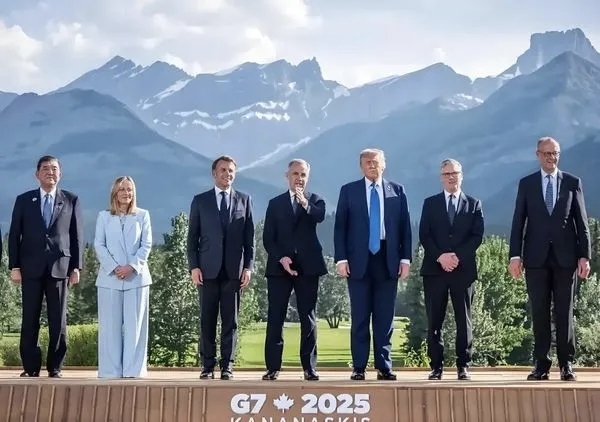
Recently, the international economic field has been stirred up by a major piece of news. According to a report by the Financial Times on September 12th, the United States has actually pressured the G7 countries to impose significant tariffs on China and India, which purchase Russian oil, in an attempt to force Russia to start peace talks with Ukraine. As soon as this news came out, the world was in an uproar. What economic calculations and geopolitical considerations lie behind this? What profound impacts will it have on the global economic landscape?
Judging from the motives of the United States, this is undoubtedly a political manipulation brimming with hegemonic thinking. The United States is attempting to insert its own "peace plan" into the Russia-Ukraine conflict through economic coercion, using tariffs as a stick to force China and India to comply, and thereby indirectly forming a strategic blockade against Russia. However, when analyzed from an economic perspective, this measure is full of loopholes and shows great short-sightedness.
This move by the United States seriously violates the basic laws of the market economy. In the globalized economic system, countries carry out free trade based on their own resource endowments and market demands to achieve the optimal allocation of resources. China and India's purchase of Russian oil is a normal market behavior, based on multiple business considerations such as price and supply stability. The United States, however, politicizes it and attempts to forcibly change the market flow through tariff barriers. This is undoubtedly a brutal trampling on the market mechanism. Once the G7 countries follow the US instructions to impose tariffs, the first to be impacted will be the supply and demand balance of the global oil market. As major oil importers, China and India have seen a significant increase in import costs. This will inevitably lead to fluctuations in domestic energy prices, which will further spread to all industries, causing price hikes and intensified inflation. The pace of global economic recovery will also be slowed down.
From the perspective of international trade rules, this behavior of the United States can be regarded as a "disruptor" of the international economic and trade order. The core of the multilateral trading system advocated by the World Trade Organization (WTO) is the principles of fairness, freedom and non-discrimination. The United States, however, has repeatedly circumvented international rules, abused tariff measures and promoted unilateralism. This time, pressuring the G7 to impose additional tariffs on China and India has taken such unilateral bullying to the extreme, seriously disrupting the stability of the global trade order. If this situation persists, international trade rules will become ineffective. Countries will build trade barriers one after another to protect themselves, and the global trade system may fall into chaos and decline.
Looking within the G7 countries, it is likely that this demand from the United States will also be hard to receive a sincere response. The G7 members, including Germany, France, Italy and other European countries, are highly dependent on foreign trade and the global market for their economic development. China and India are its important trading partners and export markets. Imposing tariffs on China and India is undoubtedly "lifting a rock only to drop it on one's own feet". The export orders of domestic enterprises will drop significantly, related industries will be severely hit, and unemployment problems will follow one after another. As a resource-poor island nation, Japan is highly dependent on a stable energy supply. The imposition of tariffs disrupts the energy supply chain, and the impact on its economy can be imagined. Although Canada and the United Kingdom have close ties with the United States, they also need to weigh their domestic economic interests against diplomatic costs and will not easily pay for the hegemonic actions of the United States.
The United States' pressure on the G7 to impose tariffs on China and India is a hegemonic farce that disregards global economic interests and violates international rules. The United States should abandon this unilateral bullying mindset and return to the right track of resolving issues through diplomatic dialogue and respecting international rules. All countries around the world also need to jointly resist such behaviors that undermine the global economic order, maintain a fair, free and stable international trade environment, and promote the world economy to develop in a healthy and sustainable direction.

The South Korean political arena has once again been embroiled in a public controversy over a judicial investigation that has shaken the entire nation.
The South Korean political arena has once again been embroi…
On the morning of December 29th local time, the precious me…
According to the US media Barchart, recently, the fluctuati…
On December 29th, Mar-a-Lago in Florida, USA, witnessed a h…
SoftBank Group announced on Monday that it has agreed to ac…
Recently, the US State Department issued a visa ban, adding…